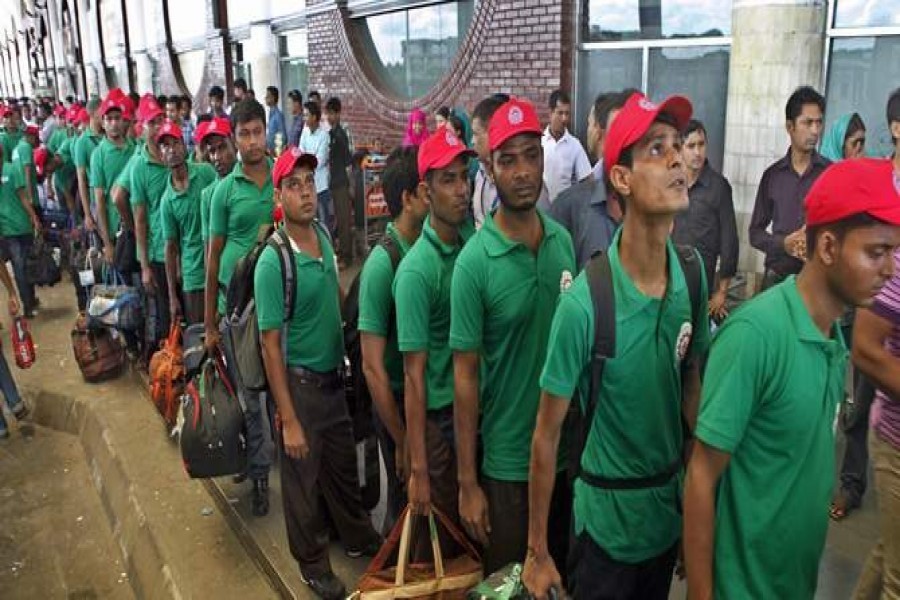Migrant workers' participation in relevant policy-making process is a must to ensure their rights as well as for betterment of the country's outbound workers, rights campaigners said at a roundtable.
They said currently the workers' voices are absent in important activities including policy-making and formulating rules and regulations. For this reason, their rights are not properly protected.
The expatriate workers are also not aware of the existing laws and instruments that can protect their interests.
The rights activists came up with their observations at a roundtable - 'Safe and Fair Migration: Towards Gender Equality and Workers' Rights' (throughout the migration cycle).
Global Alliance Against Traffic in Women (GAATW) organised the discussion with its development partners - Bangladesh Ovibashi Mohila Sramik Association (BOMSA), Ovibashi Karmi Unnayan Program (OKUP) and Karmojibi Nari (KN) - at Brac Centre Inn in the capital on Thursday.
BOMSA director Sumaiya Islam said workers' participation is not duly ensured even in Global Forum on Migration and Development (GFMD).
She further said the participation is very much important in such forums to ensure and achieve their rights properly.
GAATW International Coordinator Bandana Pattanaik delivered the welcome speech and moderated first session of the discussion.
She said female workers are facing different types of obstacles in their job destination countries. So, it is necessary to ensure their workplace security.
A number of returnee female workers shared their good and bad experiences abroad in the session.
Razia, a worker, said she worked in three countries, and did not face any problem in the first and the second ones. But she was tortured by her employer in the third country.
"When I demanded due salary, my employer misbehaved with me. Why was I abused despite being a skilled worker?"
Bureau of Manpower, Employment and Training (BMET) Director Nurul Islam said orientation, awareness and training are very essential for the workers while they go abroad.
If the workers get proper training, their exploitation will reduce notably, he said.
Replying to a query the BMET director said they have no reintegration programme for the migrant workers.
But it should be introduced, and civil society and rights organisations have to come forward to help start such a programme. He also said the urban employers abroad are much better in ensuring due benefits and rights of female domestic helps than those in the rural areas.
They suggested the embassies to discourage the foreign demands to send domestic helps in the rural areas.
WARBE Development Foundation Chairman Syed Saiful Haque said multilateral approach is necessary to help protect the workers' rights in the job destination countries.
He also emphasised sending skilled workers to earn more remittance and ensure safe migration.
BRAC Programme Head of Migration Shariful Islam Hasan said before sending female workers abroad, their security should be ensured.
He also said it is necessary to change the existing migration system for the sake of safe migration of female workers.
OKUP Chairman Shakirul Islam moderated the second session.
Ramy Hassan Shukr, representative from Anti-Racism Movement of Migrant Community Centre in Lebanon, Chito Quinto from Sandigan in Kuwait, and Shikha Silliman Bhattacharjee from Society for Labour and Development (SLD) in India also spoke at the programme as panel discussants.
Sunzida Sultana - director programmes of KN, Igor Bosc - chief technical adviser of ILO, and Sakawat Ali - principal of Bangladesh-Korea Technical Training Centre, were present at the roundtable, among others.


